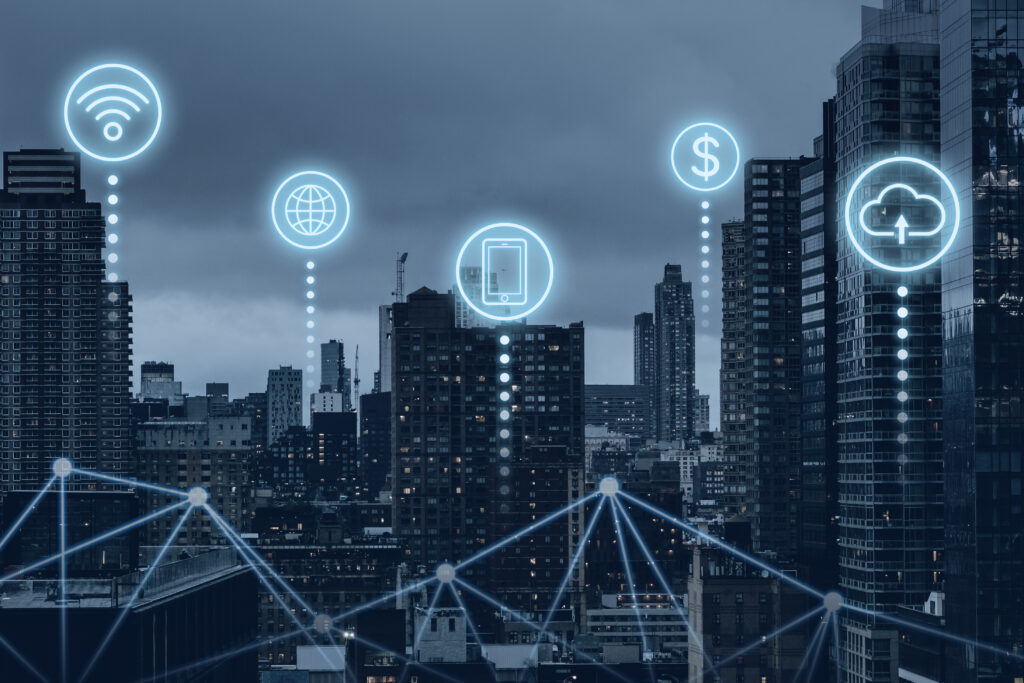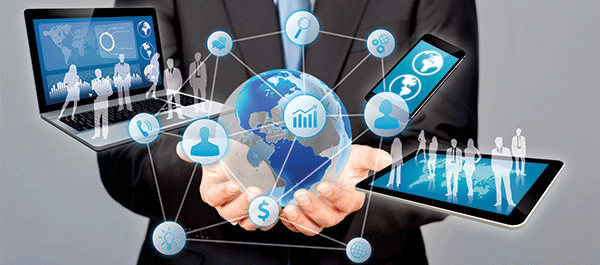The Transformative Power of Technology: A Comprehensive Exploration of its Impact on Society
Introduction:
In the 21st century, the world is undergoing an essential transformation propelled by the relentless march of technology. From the way we communicate and access information to the revolutionizing of healthcare, education, and industry, the impact is profound and many-sided. This comprehensive exploration probes into the countless ways in which technology is changing our world, emphasizing both the positive and negative aspects of this ongoing digital revolution.
Communication Revolution:

The internet has emerged as the backbone of modern communication, promoting unprecedented connectivity across the globe. Social media platforms have become powerful tools for personal expression, activism, and the distribution of information. The closeness of communication enabled by technology has not only brought people closer together but has also significantly influenced public address and opinion formation. However, it has also raised concerns about the spread of misinformation and the impact on privacy.
Healthcare Regeneration:

In the field of healthcare, technology has ushered in a regeneration. Advanced diagnostic tools, telemedicine, and electronic health records have transformed patient care, making it more personalized and efficient. Wearable devices and health apps empower individuals to monitor their well-being actively, contributing to preventive healthcare. Artificial intelligence is playing an essential role in medical research, diagnosis, and treatment planning, promising breakthroughs in areas that were once thought impossible.
Education in the Digital Age:

The educational landscape has undergone a profound shift with the integration of technology. Online learning platforms and digital resources have democratized education, breaking down geographical barriers and providing access to knowledge globally. Interactive simulations, virtual reality, and increased reality are redefining traditional teaching methods, offering immersive and engaging learning experiences. The digitalization of educational content has revolutionized the learning process, enabling self-directed learning and skill acquisition tailored to individual needs.
Business and Industry Transformation:

In the business world, technology has become a driving force for innovation and efficiency. Automation and robotics have revolutionized manufacturing processes, enhancing productivity and precision while reducing labor-intensive tasks. Data analytics and artificial intelligence are transforming decision-making processes, allowing businesses to gain valuable insights and stay competitive in dynamic markets. Blockchain technology is reshaping financial transactions, introducing decentralized and secure systems for handling digital assets, thereby revolutionizing the financial field.
Entertainment in the Digital Era:

The entertainment industry has experienced a standard shift with the advent of technology. Streaming services, online gaming, and immersive experiences have transformed the way we consume and create content. Virtual reality and augmented reality technologies have pushed the boundaries of immersive experiences, offering new possibilities for entertainment, education, and even therapeutic applications. The digitization of content has not only expanded access but has also fuelled a creative rebirth, enabling creators to reach global audiences with their work.
Smart Cities and Sustainable Living:

The concept of smart cities is gaining momentum, leveraging technology to create more efficient and sustainable urban environments. The Internet of Things (IoT) plays a crucial role in smart cities, connecting devices and systems to improve services such as traffic management, waste disposal, and energy consumption. These interconnected ecosystems use data to improve the quality of life for residents and contribute to more sustainable development practices.
Environmental Monitoring and Conservation:

Technology is proving to be a valuable assistant in environmental monitoring and conservation efforts. Remote sensing technologies and satellite imagery provide scientists with invaluable tools to track changes in the environment, monitor wildlife, and assess the impact of human activities. The integration of IoT(Internet of Things) devices facilitates efficient resource management, contributing to the global effort towards sustainable development and conservation of biodiversity.
Challenges and Ethical Considerations:

While the benefits of technology are evident, the speedy pace of advancement raises concerns about privacy, security, and ethical implications. The collection and analysis of massive amounts of data raise questions about the protection of personal information. Artificial intelligence and automation also position challenges related to job displacement and the need for continuous workforce retraining. Striking a balance between innovation and responsible use of technology is supreme to address these challenges and ensure a harmonious coexistence with the ever-evolving digital field.
Conclusion:
In conclusion, technology is a dynamic and powerful force reshaping the world on a scale that is both wonder-inspiring and at times discouraging. The ongoing digital revolution touches every side of our lives, offering first-time opportunities for progress and connectivity. However, the challenges posed by issues like privacy, security, and ethical considerations must be addressed to ensure a balanced and equitable future. The route of technological advancement will continue to shape societies, economies, and daily lives in ways that we are only beginning to comprehend, underscoring the need for thoughtful reflection and proactive measures to connect its transformative potential responsibly.

